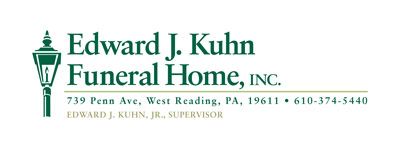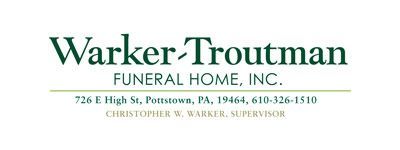Guidance
What to Expect Before the Funeral
You should know that we've taken great pains to make your experience with us as easy as possible. Here's how:
- We've put a lot of work into making our funeral home a pleasant place to spend time. That means our interior design is easy-on-the-eye, the rooms are spacious yet cozy, and the furniture is comfortable.
- Our staff is both professional yet personable. We believe that when you leave, you'll consider us more than funeral directors; we'll be well-on-our-way to being friends. Friends you can really trust to compassionately care for your loved one... and for your family.
- We've streamlined the funeral arrangement process. Since we've been making funeral arrangements with families for a very long time, we've had ample opportunity to learn the easiest, most efficient way to get through the process. Believe us when we say; it won't take as long as you think.
- Our team is trained to handle all the details. And we do mean all of them. From filing insurance, social security or veterans administration paperwork; to greeting and bidding farewell to your guests—and everything in between.
Exactly What Happens at the Funeral Home?
- When you come through the front door, you will be greeted warmly by a staff member. Names will be exchanged, and hands shaken in cordiality. Some words of comfort will be offered.
- Once informed of the reason for your visit, you will be directed to the funeral director's office or arrangement office.
- Before the funeral arrangement conversation goes very far, you will be given a copy of our General Price List, Casket Price List, and any other appropriate price-related documents. This is done to ensure compliance with the Federal Trade Commission's Funeral Rule.
- Share accurate biographical details of the deceased to assist the funeral director in completing relevant paperwork; and
- Come to an agreement about the plans for the funeral, memorial service, or celebration of life.
Clearly State the Facts
- The deceased's full name
- Their Social Security number
- Parent's names
- Spouse and children's names
- Maiden name of mother
- Marital status
- Educational history
- History of military service
- Work history
- Hobbies and interests
- Church affiliation
- A list of organizational and club memberships
- A recent photograph
Planning for the Funeral Event
- Pre-arrangement papers, if applicable
- Clothes in which to bury or cremate your loved one
- Cemetery property information, if applicable
- A list of preferred charities for memorial donations, if applicable
- A list of pallbearers, if applicable
- Desired musical and readings selections
In the End
What to Expect During the Funeral
- We do our best to provide adequate parking facilities. Yet, parking may be hard to find, so do your best to arrive 10-15 minutes early.
- Depending on the location of the funeral, your entrance may be governed by protocol. Often, guests are asked to remain unseated until the family has taken their seats. Sometimes ushers are provided to escort you to your seat. If you're unclear as to what's expected, just watch others for your cues--or ask the funeral attendant.
- Again, depending on the location, the ceremony may be officiated by a pastor, minister, celebrant or funeral director.
- Remember that the front seats are intended for immediate family members, so choose a seat near the middle; or if you didn't know the deceased well, sit near the back of the room.
- You may receive a copy of the funeral order-of-service, which details what will happen during the ceremony. It will tell you exactly which hymns will be sung, and specifically names the prayers to be read. It's like a program at a theater or symphony performance: the funeral order-of-service is a very handy thing to have. If you're given one, hang on to it.
- Depending on what's in the order-of-service, you will have the opportunity to participate in various activities. You may be asked to stand to sing a hymn or kneel in prayer; only participate to the degree you feel comfortable.
- If the service is less traditional and more a celebration-of-life, you may be asked to close the service with a release of a balloon. Or you may find yourself requested to place a flower in the casket. Some families ask their guests to write a note to the deceased and place it in the casket. We suggest doing only as much as you feel comfortable doing.
Will People Cry?
How to Leave the Funeral
Call Us to Learn More
What to Expect After the Funeral
The Early Days After Loss
You've got two important things to do in the coming weeks and months. As much as possible, you need to practice exquisite self-care. You also need to spend some time focused on completing the paperwork which will officially change the status of your loved one with banks and creditors; employers, insurance companies, and mortgage holders. This can be a slow process; so be prepared for the "long haul".
What is Your Relationship Status?
The Paperwork
- Birth certificate
- Driver's License or State Identification Card
- Passport (if applicable)
- Marriage certificate
- Divorce papers (if applicable)
- Deeds and Titles to real and personal property
- Veteran's Administration Claim Number (or service discharge papers)
- Recent Income Tax Forms
- W-2 forms (if employed)
- Recent hospitalization records
- Insurance documents: Life, Health, Automobile (there may be more than one policy in each category)
17 Things to Do After the Funeral
- Before you do anything, get a notebook. You'll want to record the date and time of every phone conversation, email or postal communication; if you did it, write it down. Be sure to include the full name of the person you spoke to, their job title; and their employer identification or extension number.
- Request certified copies of the Death Certificate. Speak with one of our funeral professionals to determine just how many you will require.
- Check to see if deceased had left a will. This may require contacting the family attorney, checking your safe deposit box or home safe or the state Will Registry.
- Get the mail redirected, if applicable. Visit the United States Postal Service website
to learn more about how to submit a Change of Address form. Or stop by your local post office.
- Stop health insurance coverage. You may need to provide them with additional information, so keep your relevant paperwork handy.
- Contact employer or union. Determine if there are any death-related benefits available, ask (and answer) questions, and change any relevant contact information.
- Make sure to pay the bills. Some folks have their bills paid automatically, but if this isn't the case here, you'll need to take care of them before they become delinquent. If you fear delinquency, you may wish to speak with a representative to work out a payment plan.
- Initiate probate. Even if you're not the executor, if you have an interest in the estate, it's possible for you initiate probate court proceedings (but only if the designated executor of the estate fails to do so in a timely way). You may want to find and hire an estate settlement attorney.
- Notify utility departments. Depending on the situation, the accounts may be closed, or the account owner's name and contact details changed.
- Transfer title of real and personal property. Whether it's an automobile, boat, motorcycle, RV, or plane; you'll need to inform your state department of motor vehicles of the change in ownership. At the very same time, notify any related vehicular or personal property insurance companies of the change in status.
- Close or modify credit card accounts. You will probably need to provide each of them with a certified copy of the death certificate. Again, keep that set of file folders handy.
- Contact life insurance companies. Not everyone has life insurance; but some people have more than one policy. No matter how many policies were in force, you will probably need to provide each of them with a certified copy of the death certificate for each claim made.
- Notify other policy holders of the change in "Beneficiary" status. If your loved one was a designated beneficiary on the insurance policies; investment or banking accounts of other individuals, then you'll need to notify them of the death of a beneficiary.
- Arrange to close or modify bank accounts. Depending on your relationship to the deceased, you may be entitled to convert into your name.
- Change stocks and bonds into your name. Again, this depends on your relationship status to the deceased. To do this, you'll need to provide certified copy of the death certificate to all organizations involved.
- Report the death to other agencies. Depending on the age or military status of the deceased, you may need to notify either the Social Security Administration or the Veterans Administration (or both). Other agencies of interest include membership organizations (professional or avocational associations, Masonic lodges, Rotary Clubs, gym and golf course memberships — just to name a few).
- Tend to their digital estate. If they were active on social media, you'll need to inform the specific networking sites of the change in status. You will need to close email accounts as well as any online banking portal or investment accounts.
Do You Have Any Questions?
List of Services
-
Funeral EtiquetteList Item 1
Also known as social graces, the rules of etiquette ease us through challenging social situations. Most of us know how to behave in common circumstances, but unless you've been to a lot of funerals you may not know the rules of proper behavior in this often uncomfortable social situation.
-
Legal & Estate GuidanceList Item 2
The death of a loved one can mean that you will need to find an attorney to help with the process of estate settlement. While it isn't necessary to have an attorney prepare an advance directive, it can be advantageous to have one prepare your will or any other estate-related documents.
-
Eulogies & ObituariesList Item 3
Eulogies and obituaries may have traditional outlines, but their definition can be whatever you and your family wish for them to be. Explore this section of our website to learn more about how to write a eulogy and an obituary.
-
Frequently Asked QuestionsList Item 4
Questions, questions, questions: we hear them all the time. It's only natural. Because life expectancies are longer and the personal experience of funeral services less frequent than it was 150 years ago, most people know less about funeral ceremonies than you might expect. If you're one of those inexperienced individuals, you'll be pleased to know we've put together this list of frequently-asked-questions just for you.





